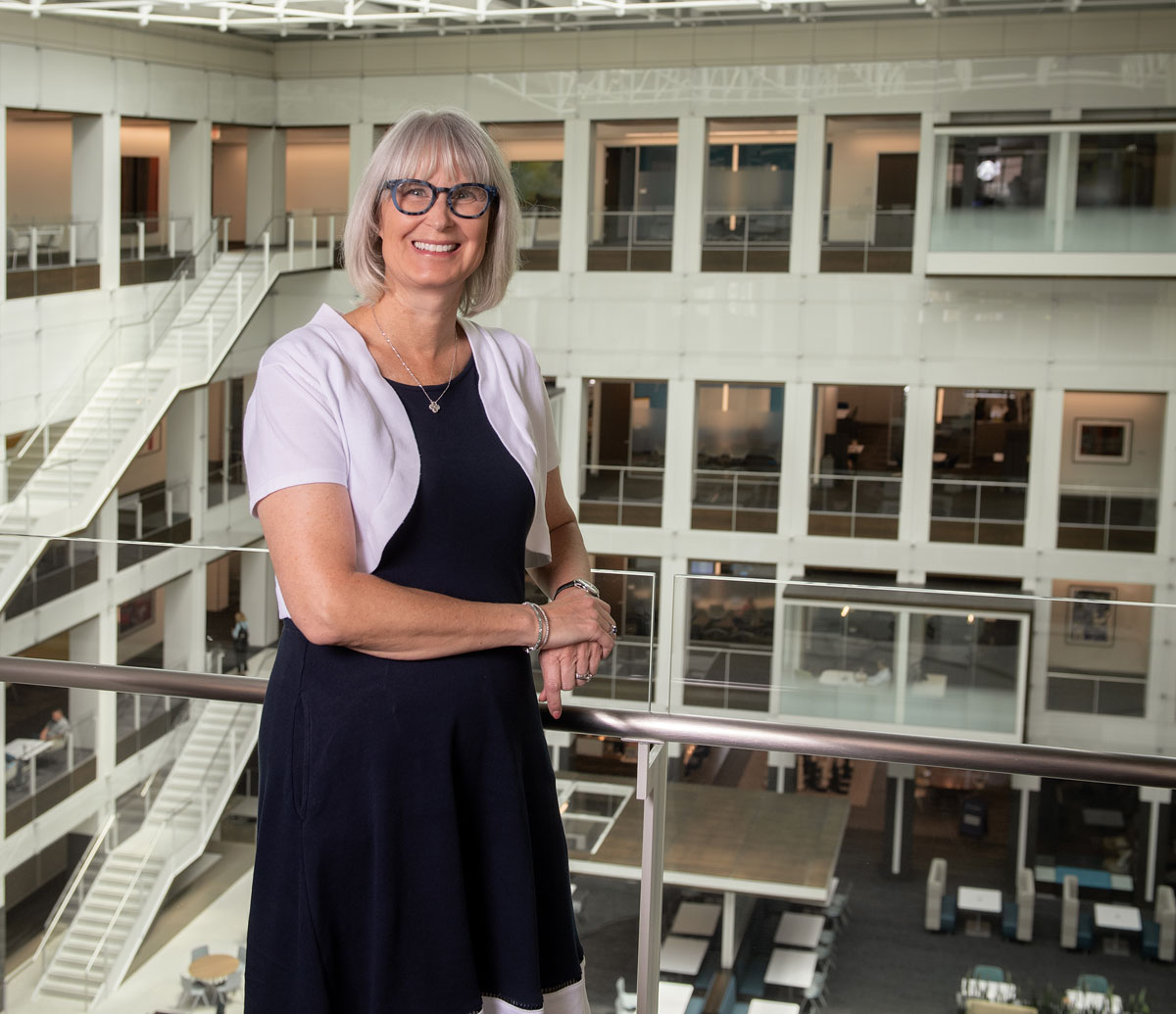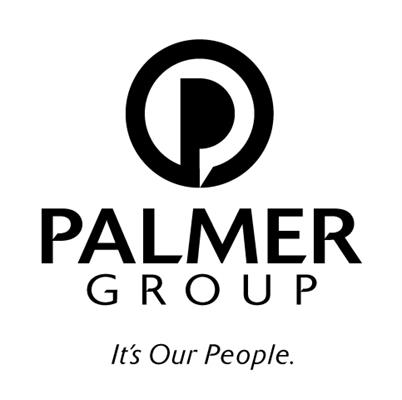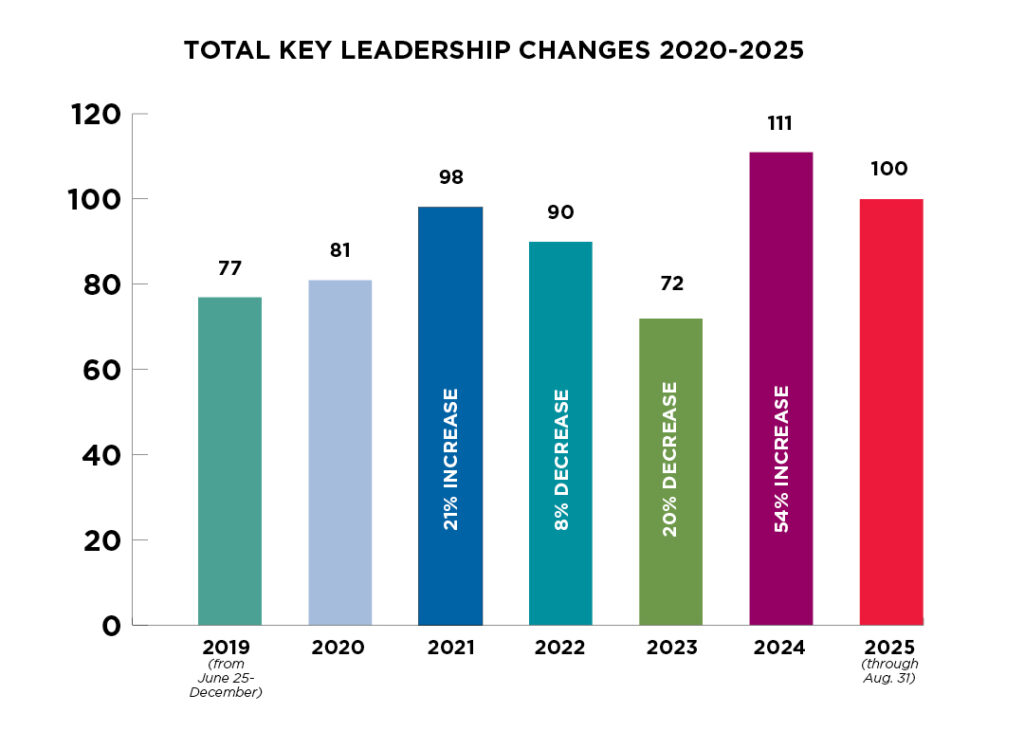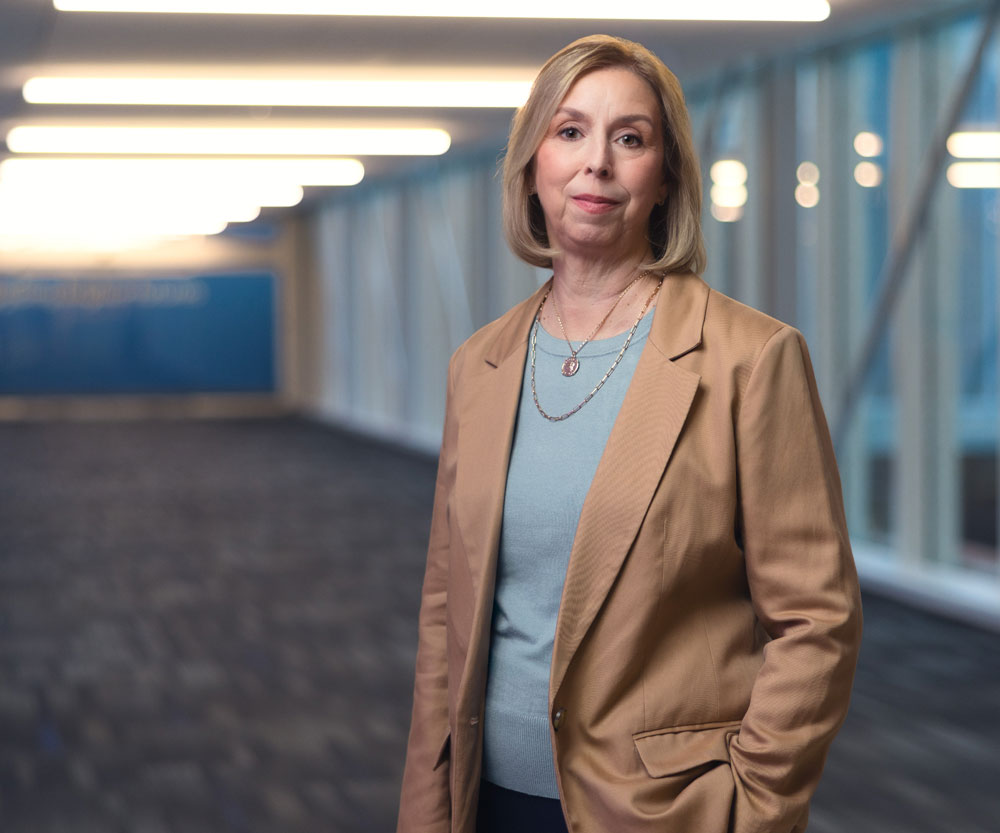Settling into the new normal
How 3 local businesses are approaching flexible work five years on from the pandemic
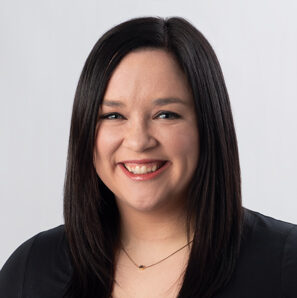
The COVID-19 pandemic caused employers around the world to undertake the dramatic shift to remote work to reduce transmission of the virus.
This was the beginning of a new way of working, one that brought the importance of flexibility and having space for personal lives to the forefront for employees. According to the U.S. Census Bureau, the percentage of employees working from home grew from 5.7% of all workers in 2019 to 17.9% in 2021, an increase of almost 19 million employees.
Five years later, after a vaccine and reduced rates of the virus, flexible work remains a top priority for employees and job seekers. A report from LiveCareer states 76% of Millennials, 69% of Gen Z and 64% of Gen X expect flexibility in work options.
Some companies have required employees to return to the office on either a full-time or hybrid basis. Businesses like Amazon, Goldman Sachs, JPMorgan Chase and Ankeny-based Casey’s require most or all employees to be in the office full time. The Trump administration required all federal government employees to work full time in office starting in January.
But the definition of flexibility has also evolved beyond just remote work to include other benefits that support employee’s post-pandemic lifestyles.
Several Central Iowa businesses that have in-person work requirements are finding a balance between satisfying workers’ desires for flexible policies and benefits and maintaining workplace culture through transparency, open communication and effective change management.
The desire for work-life balance
To Lisa Coulson, senior vice president and chief human resources officer at Principal Financial Group, employees wanting flexibility in their jobs is nothing new.
“It’s always been important, and it’s always been important to us,” Coulson said. “The emphasis, I think, on listening to employees has evolved. We’re getting more real time information about what people value, and then you’re able to find solutions that help meet those needs.”
The concept of flexibility at work can mean many things — choosing the hours you work, working from wherever feels best to you, the ability to attend to care-giving duties throughout the day or a generous PTO policy. The emotional turmoil of a global pandemic caused many people to reevaluate their priorities.
“I do believe that a lot of people during that time did a lot of reflecting and thought, ‘OK, what’s important in life?’ I don’t know that anyone’s quite the same after that,” said Sarah DeKock, senior vice president and partner at Flynn Wright.
Research has shown that working from home remains a highly coveted benefit by jobseekers. A LinkedIn State of the Labor Market report in October 2024 showed hybrid and remote jobs make up 1 in 5 job postings on LinkedIn but receive 3 of every 5 applications.
We talked with executives at Principal, Flynn Wright and Holmes Murphy about company culture, leadership and benefits that help them compete in today’s recruiting environment.
Principal Financial Group
With about 6,000 employees in Des Moines alone, Principal Financial Group is operating on a wide spectrum of what flexibility means to each employee. Coulson said the company’s definition has intentionally evolved over her 18-year tenure.
“We’ve always been flexible. When I came to Principal, I had been a working mom and was trying to define what flexibility meant for me,” she said. “Flexibility and work-life balance evolve based on your personal situations, and we all define it differently. If you’re employee-centric, you want to understand what the possibilities are in order for you to meet your client needs and to allow for that.”
Principal employs a hybrid work schedule that requires employees to be in the office three days a week if they live within a 30-mile radius of the company’s offices in Des Moines and Charlotte, N.C. Employees in some roles and locations can work 100% remote, and others spend the full week in the office based on client needs.
With such a large and diverse workforce, Principal approaches benefits with the philosophy that different people need different things at different stages of their lives. Its goal is to offer supportive policies and programs that employees are able to tailor to their lives, Coulson said.
Those benefits range from Maven, a 24/7 virtual support program for employees and their partners as they navigate family planning and women’s health, to on-site child care, to financial planning seminars. They also offer education assistance and pet insurance.
“As you think about the different profiles of employees, we try to offer different alternatives that allow people to have their mix,” Coulson said. “We listen to what’s important to folks.”
Health and wellness is one area that remains of high value to Principal employees. Employees have access to a health and wellness center at the company’s four building campus in Des Moines, with yoga studios, fitness equipment, basketball courts and more. Many of their other locations have similar centers, and employees who work at sites without one are offered reimbursement to use at other facilities.
Coulson said the center was a major selling point for employees who wanted to return to the office after working remotely. The transition period of bringing more and more employees back to the office required effective change management to ease the company into the new normal.
“Once we decided that we were going to a hybrid model, we listened, pulled together a communication plan and provided a transition timing so folks knew that as of a certain date, this is what it would look like,” Coulson said. “Then we had a period of time where people could work through personal transition issues.”
Coulson believes the transition to a hybrid model both supports employees’ well-being and the needs of their clients.
“Being in the office is being able to share real-time information as things come up. When I was growing in my career, not only did I take training classes but it was through some of the interactions that I had over the wall or as people were brainstorming that gave me exposure to different things,” Coulson said. “When I think about the way work gets done, having the opportunity to do it both in person and remotely, I personally believe there’s a good blend.”
Holmes Murphy
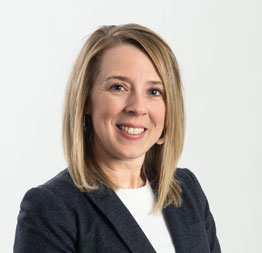
As vice president – client service leader, employee benefits and shareholder at Holmes Murphy, Becky Hammond sees what employees are asking for from their employers both internally at the organization and externally with her clients.
She said that strong leadership and transparency are key to building a workplace that values both personal wellness and a culture of togetherness.
“There’s something to be said about presenteeism and being together and collaborating and having the energy. But we also know that gone are the days of clocking in at 8 a.m. and leaving at 5,” Hammond said. “We can’t recruit competitive talent if we can’t afford them the opportunity to care for themselves outside of the workplace.”
Holmes Murphy has a hybrid work schedule where employees are required to be in the office four days a week and can choose which day they’d like to work elsewhere. Before the pandemic, employees were expected to be in the office five days a week from 8 a.m. to 5 p.m. unless there were extenuating circumstances.
Leaders at Holmes Murphy maintain transparency in the recruiting process to ensure employees buy in from the beginning, Hammond said.
“We’re very transparent around our culture of flexibility but also that our expectation is that you’re in the office four days a week,” Hammond said. “We really try to help them understand the why behind it as well. It’s not just that we want to have you sitting in a desk. It’s more so around the collaboration and propelling the business forward.”
Holmes Murphy’s culture of flexibility relies on open communication and trust. They don’t have strict rules around when employees can attend to their personal lives, but expect employees and managers to communicate about what’s needed for everyone to be successful.
“The people we have here care about our clients, and so they’re going to do what it takes to get their work done. We feel like we can give them the autonomy to make their day what it needs to be based on their personal demands,’ Hammond said.
Hammond has also seen many of her consulting clients land on a hybrid work schedule as the most beneficial solution for their company. Her clients are also focused on recruiting competitive talent, so they offer additional benefits as incentives.
These benefits often relate to employees’ caregiving responsibilities. Some employers offer on-site child care. Others provide backup care when parents can’t access their regular daycare. She’s even seen a company offer dog-walking services for those employees who adopted a pet during the pandemic and needed support when they had to return to the office.
Other types of benefits differ by industry. Health care workers in patient-care settings typically can’t work from home, so they’re offered consolidated work weeks. Other employers may offer paid volunteer time off or a day to celebrate your birthday that doesn’t come out of your regular PTO bank.
No matter the benefits offered, Hammond said the cultures that are most successful have involved leadership that really adopt the company’s philosophy on work-life balance.
“You definitely have to have leadership adoption of having a flexible work environment. Sometimes, that’s really hard for leaders, because they’ve been kind of brought up in their career or leadership journey by really keeping tabs on people, so it’s hard for them to change that mindset,” Hammond said. “But you really have to lay out the foundation, the framework and support it and gather everyone around them to support it. You have to walk the walk and talk the talk.”
Flynn Wright
Des Moines-based advertising agency Flynn Wright decided early in the pandemic that as soon as it was safe to do so, they wanted their employees back in the office full time.
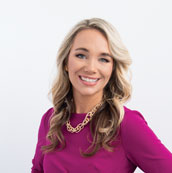
“The culture that we have, people love to work together because it’s a creative industry,” DeKock said. “That collaboration is so important to what we do.”
DeKock described the company’s culture as collaborative and creative and said in-person work is crucial to serving their clients.
“Service is a huge part of what we do, and creativity is king in our business because we’re always trying to find ways to differentiate our clients from their competition,” she said. “When you’re ideating and spitballing, it’s important you have those collaboration moments where it’s organic. You want people giving their opinion. We’ve actually designed our office in a way that allows for a lot of pop-up meetings.”
Flynn Wright has experienced rapid growth over the last few years. When DeKock began working there in 2004, they had 40 employees. Today, it’s over 100. They recently opened another office in downtown Des Moines above the Americana restaurant.
Intentional and open recruitment has helped them bring in high-performing talent, even without offering hybrid or remote work.
DeKock said that advertising is a “business [that] doesn’t really sleep,” and those looking to work at Flynn Wright buy in to their philosophies from the beginning.
“We spend a lot of time looking for the right individuals that work within our culture and that have the same expectations and core values as we do,” she said. “We’re very clear from day one that this is an in-office choice. We want people that want that, and there’s, surprisingly, a lot of people that do.”
DeKock said that advertising employees often skew younger, and being in office offers more opportunities for those younger employees to gain valuable exposure.
It can even lead to more opportunities for career growth. The Wall Street Journal reported that in 2023, employees working remotely were promoted 31% less frequently than those working in the office. This has led to a widening career gap for women, who have worked remotely at higher rates than men since the pandemic.
“If you’re not in the office, you might not be the first person called over to help with something. Those are the people that get a chance to stand out a little bit,” DeKock said.
Flynn Wright designed their space with collaboration and aesthetics in mind, so the office is an attractive place to work. New hires also start with 25 days of PTO. DeKock said managers understand when life events come up and allow employees to adjust where they’re working when needed.
“We need everyone to be their whole self. Sometimes life calls, and so when that happens, we want to give everyone the flexibility,” DeKock said. “No one abuses it, because I think everyone understands what we’re trying to build.”
When the company decided to bring everyone back to the office full time in 2021, they set a return to work date and gave everyone time to adjust. DeKock said clients expressed gratitude for Flynn Wright staff being in the office and able to support them when needed.
“We’re a really successful agency that is doing really well, so it’s fun to be a part of,” she said. “We have incredible talent, really smart people, and I think when people are going through the interview process they realize, ‘Wow, I want to be a part of something like this.’ Everyone is aligned on that idea of working together to service our clients, and that we’re better together.”

Macey Shofroth
Macey Shofroth is the Fearless editor at Business Record. She covers gender, nonprofits and philanthropy, HR and leadership, diversity, equity and inclusion.

